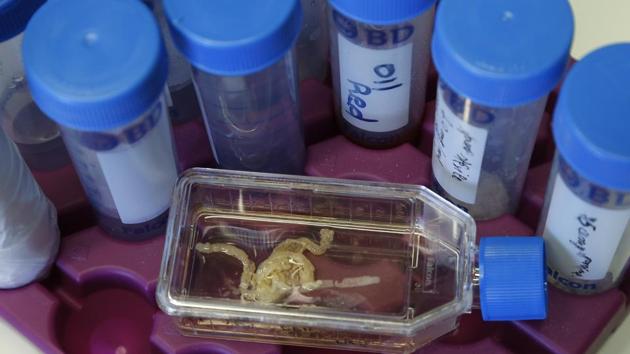Check the potential misuse of stem cell therapy
A government regulation is necessary to prevent the exploitation of those who see hope in this treatment
The Union ministry of health and family welfare’s proposal to amend the Drugs and Cosmetics Act, 1940, to regulate the import, manufacture, distribution and sale of stem cells and stem cell-based products is critical to prevent potential misuse. Since Dolly the sheep was cloned from an adult somatic cell in 1996, experiments using stem cell therapies and products to treat diseases have grown exponentially. But with great hope comes an equally great potential of misuse for exploitative stem cell treatments that are used on patients before they have been evaluated and proven to be safe and effective.

The ministry’s proposed amendments define the category of stem cells and their derivatives that would be termed as a drug and would have to follow the mandatory drug development protocols for safety and efficacy before getting the drug regulator’s approval to be used or marketed. It includes products with stem cells that have been “substantially altered” to change their biological characteristics or those that have been subjected to gene editing or modification.
Stem cells are undifferentiated cells that are the body’s building blocks and can generate healthy and functioning specialised cells to replace diseased or dysfunctional cells that cannot heal naturally. The use of autologous stem cells — where the person’s own stem cells are harvested from the bone marrow and umbilical cord and minimally manipulated before being infused back — to regenerate damaged cells, tissues and organs, will not require a regulatory nod. Autologous stem cell are increasingly being used to boost regeneration of healthy cells, such as in the treatment of blood cancer with haematopoietic stem cells in the bone marrow, and for replacing cells destroyed by high doses of chemotherapy.
The National Guidelines for Stem Cell Research 2017 formulated by Indian Council of Medical Research and Department of Biotechnology last year provide for action against doctors and clinics conducting unproven stem cell therapies and procedures, but since guidelines are not binding and cannot be enforced with legal action, unethical profiteers continue to exploit the sick and unsuspecting with promises of treatment and cure.
Since stem cells can be modified into different functional adult cell types, therapies using them can potentially cure all diseases involving tissue degeneration, including heart failure, spinal cord injury (actor Christopher “Superman” Reeves was a big supporter of stem cell research), stroke, burns, type 1 diabetes, osteoarthritis, rheumatoid arthritis, muscular dystrophy, Parkinson’s disease, Huntington’s disease, Alzheimer’s and amyotrophic lateral sclerosis (ALS), which most famously affected physicist Stephen Hawking, among others. It’s this potential that makes it imperative to regulate and protect the sick from financial exploitation and their families from emotional devastation.






